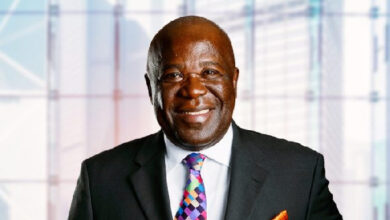Ghana’s fuel bill could reach US$1 billion in 2025 – John Jinapor

This projection comes amid rising electricity demand, expected to increase by 300 megawatts annually.
The fuel products involved include diesel, light crude oil, and heavy fuel oil (HFO), the minister stated.
This development places significant pressure on the country’s energy infrastructure. Jinapor emphasized that the current situation is unsustainable and stressed the urgent need for a new gas processing facility to alleviate both financial and operational strain on the sector.
Speaking at the inauguration of two committees – Technical and Steering – to lead the construction of Ghana’s second national gas processing plant (GPP2) in Accra, the minister lamented that “liquid fuel currently is not part of the tariff structure.”
As part of efforts to address this challenge, construction of GPP2 has commenced. According to Jinapor, the project aims to provide a more cost-effective alternative to liquid fuel for electricity generation.
“Currently, we have a gas deficit of about 100 million standard cubic feet (MMscf) per day. So, we are compelled to buy very expensive liquid fuel to fill that gap. It is in light of this that the government has decided to build GPP2,” he explained.
The initiative is expected to save the country up to US$500 million annually. This means the savings from switching to gas for power generation could potentially cover the cost of the second gas plant within two years.
The construction of GPP2 is viewed as a strategic move to expand Ghana’s gas infrastructure to meet increasing domestic demand while reducing annual natural gas losses.
Jinapor noted that one of the critical issues facing the sector is the growing debt owed to Independent Power Producers (IPPs), which stems from the high cost of liquid fuel and the lack of sustainable energy alternatives.
GPP2 is also expected to increase gas consumption, improve the availability of Liquefied Natural Gas (LNG) and Liquefied Petroleum Gas (LPG), and generate both direct and indirect employment opportunities.
The Minister for Finance, Dr. Cassiel Ato Forson, who chairs the Steering Committee, also underscored the importance of the new gas processing facility. He acknowledged that without the existing Atuabo Gas Processing Plant, the country would have faced even greater energy challenges.
Dr. Forson criticized the lack of previous investment in gas infrastructure and highlighted the worsening gas deficit, which forces the country to rely on costly liquid fuels for power generation.
He asserted that just two years of savings from the switch to gas could fund the new facility. “I’m surprised to hear that the previous administration, after so many years of talk, was unable to begin the process of acquiring a second gas processing plant,” he said.
The Finance Minister urged the Technical Committee to act swiftly. “We need to have a second gas processing plant as soon as possible, and I believe the Committee will be able to complete their work in time for us to commission the contractor.”
It will be recalled that the Africa Centre for Energy Policy (ACEP), in its 2025 Budget Insights, questioned the absence of any mention of GPP2 and its financing arrangements in the national budget, despite the Energy Minister’s announcement of Cabinet approval for the project.
According to ACEP, the additional processing facility would help Ghana optimize its domestic natural gas resources, including the commercialization of flared gas.
“The Ghana Upstream Petroleum Chamber estimates that Ghana lost about US$290 million to the value chain from flared gas in 2023. A previous attempt to develop a second train had a price tag of about US$800 million to process an additional 150 MMscf,” ACEP noted.
The think tank added, “This is more than double the benchmark cost for such a processing plant. Therefore, future attempts require a more transparent and competitive award process to ensure the country is getting value for money from the project.”
ACEP further emphasized that such projects should align with global benchmarks and not exceed typical market costs.
Source: thebftonline.com





